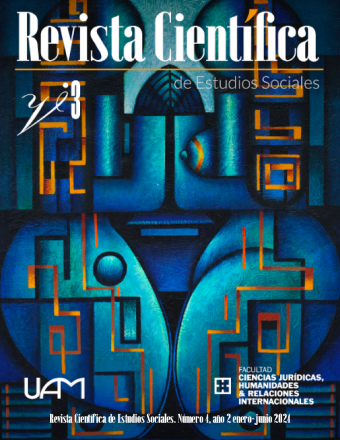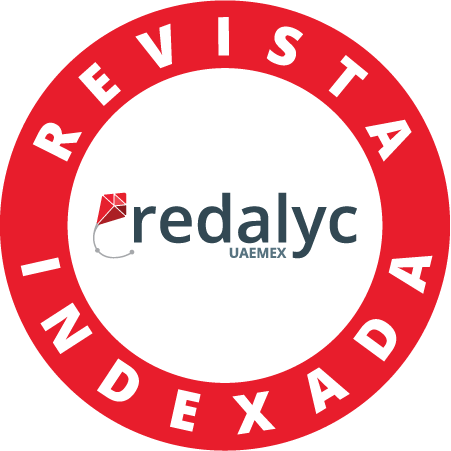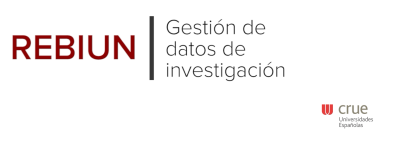Los nombres de los Estados en las Relaciones Internacionales: oficialidad, formalidad y patrones de composición
DOI:
https://doi.org/10.62407/rces.v4i4.113Palabras clave:
Corónimo, endónimos de Estados, nombres de Estados, UNGEGNResumen
Este artículo ofrece una revisión general de los nombres de Estados como tema de estudio de gran interés para campos del conocimiento en los que esta cuestión resulta relevante, como en los ámbitos de las Relaciones Internacionales y la diplomacia. Se trata de una materia con diversas vertientes y que presenta complejidades no siempre evidentes, lo cual justifica que sean consideradas y analizadas, no solo desde una vertiente académica, sino también porque resultan útiles en términos prácticos. Desde una perspectiva exploratoria se repasan los aspectos fundamentales de este objeto de estudio, ubicado en la encrucijada entre la geografía, la ciencia política y la lingüística. Para este propósito se revisan sus principales conceptos de esta materia _particularmente los de oficialidad y formalidad_ y se propone una categorización de los nombres formales de los Estados a partir de los elementos que los componen. Se espera que esta contribución, planteada desde el punto de vista de la lengua española, suscite nuevas bases para futuros desarrollos en este campo de estudio que, por necesidad, debe ser multidisciplinario.
Descargas
Referencias
Adetunji, J. (2023). Why some Indians want to change the country’s name to ‘Bharat’. The Conversation. https://theconversation.com/why-some-indians-want-to-change-the-countrys-name-to-bharat-213524
Borja Galán, A. & Ferrari Cerisuelo, M. (2011). Análisis de los criterios de traducción de topónimos y gentilicios de los países de las Naciones Unidas al español y al catalán, Fòrum de recerca, núm. 16. https://repositori.uji.es/xmlui/bitstream/handle/10234/77287/fr_2011_6_7.pdf?sequence=1
Chiaramonte, J. C., Marichal, C. y Granados, A. (2008). Crear la nación: los nombres de los países de América Latina. Buenos Aires, Editorial Sudamericana.
Chuez-Salazar, S. (2016). ¿Prohibido vender aguas frescas? sobre la propuesta de Jamaica para proteger los nombres de los países. Advocatus, (034), 167-172. https://revistas.ulima.edu.pe/index.php/Advocatus/article/view/4449
CNN. (2016, April 14). Czech Republic to be known as 'Czechia'. Retrieved from https://www.bbc.com/news/world-europe-36048186
Dittmer, L. (2008). Burma vs. Myanmar: What's in a Name? Asian Survey (2008) 48 (6): 885–888. https://doi.org/10.1525/as.2008.48.6.885
Dittmer, L. (2008). Burma vs. Myanmar: What's in a Name? Asian Survey 48 (6): 885–888. https://doi.org/10.1525/as.2008.48.6.885
Forrest, H. A. (2017). Protection of Geographic Names in International Law and Domain Name System. Wolters Kluwer.
Froomking, A. M. (2004). When we say US™, we mean it! Houston Law Review, 4. http://osaka.law.miami.edu/~froomkin/articles/ccTLDs-TM.pdf
Gómez, D. (21 octubre, 2022). ¿Se dice Bielorrusia o Belarús?, El Orden Mundial, EOM. https://elordenmundial.com/se-dice-bielorrusia-belarus/
Ioannidis, M. (2010). Naming a State: disputes over symbols of Statehood at the example of ‘Macedonia’, in von Bogdandy, A. & Wolfrum, R. (Eds.). Max Planck Yearbook of United Nations Law, Volume 14, pp. 507-561. https://www.mpil.de/files/pdf3/mpunyb_12_ioannidis_14.pdf
Janev, I. (1999). Legal Aspects of the Use of a Provisional Name for Macedonia in the United Nations System, The American Journal of International Law, Vol. 93, No. 1.155-160 https://doi.org/10.2307/2997959
Kadmon, N. (2000). Toponymy: The Lore, Laws and Language of Geographical Names. New York: Vantage Press.
Kadmon, N. (Ed.). (2002). Glossary of Terms for the Standardization of Geographical Names. New York: United Nations. https://unstats.un.org/unsd/geoinfo/ungegn/docs/glossary.pdf
United Nations Group of Experts on Geographical Names (ONU) (2022). Toponymy and Geopolitics: The Political Use —and Misuse— of Geographical Names. Kadmon, N. (Ed). https://unstats.un.org/unsd/geoinfo/ungegn/docs/glossary.pdf
McConnell, G. (2022, Jun. 2). Māori Party petition to officially call the country Aotearoa gets 70,000 supporters, Stuff (Página web) https://www.stuff.co.nz/national/politics/128845298/mori-party-petition-to-officially-call-the-country-aotearoa-gets-70000-supporters
Moreno, P. (12 febrero, 2021). ¿Por qué Birmania se llama ahora Myanmar? El Orden Mundial, EOM (Página web) https://elordenmundial.com/por-que-birmania-se-llama-myanmar/
Nieto González, J. (2016). La larga batalla por un nombre. Estado de la cuestión y perspectivas de futuro, Balkania- Revista de estudios balcánicos, núm. 7.
Organización de Naciones Unidas, ONU. (01 abril, 2023). Estados miembros (Página web). https://www.un.org/es/about-us/member-states
Özdemir, M. N. (2017). On the Origin of the Name of ‘Türkiye’(Turkey). International Congress of Social Sciences Research, Tirana (Albania), September 2017, p. 36.
Özdemir, Mehmet. (2017). On the Origin of the Name of 'Türkiye'(Turkey). Conference: Uluslararası Türk Dünyası Sosyal Bilimler Araştırmaları Kongresi https://www.researchgate.net/publication/368339392_On_the_Origin_of_the_Name_of_'Turkiye'Turkey
Pablo de Roca, S. (2016). Marca país: el registro de su identidad, Anuario dominicano de propiedad intelectual, núm. 3, pp. 77-95. https://dialnet.unirioja.es/servlet/articulo?codigo=6095924#:~:text=La%20marca%20pa%C3%ADs%20es%20una,identidad%20distintiva%20de%20una%20naci%C3%B3n.
Pelz, D. (2018, May 5). From Swaziland to eSwatini: What's in a name change? DW. https://www.dw.com/en/from-swaziland-to-eswatini-whats-in-a-name-change/a-45372631
Raper, P. (2000). Introduction to the Standardization of Geographical Names, Onoma, vol. 35. DOI: 10.2143/ONO.35.0.574374.
Ruhstaller, S. (2019). Toponimia, en Ridruejo, Emilio (Ed.), Manual de lingüística española. Walter de Gruyter, GmbH.
San Miguel, P. L. (2008). La importancia de llamarse República Dominicana: O por qué nombrarse de otra forma que no sea Haití, en Chiaramonte, J. C., Marichal, C. y Granados, A. (Comp.) Crear la nación: los nombres de los países de América Latina. Buenos Aires, Editorial Sudamericana.
Security Council Report. (2019). The UN Security Council Handbook: A User’s Guide to Practice and Procedure. https://www.securitycouncilreport.org/atf/cf/%7B65BFCF9B-6D27-4E9C-8CD3-CF6E4FF96FF9%7D/the-un-security-council-handbook-by-scr-1.pdf
Sentíes Miranda, E. (2013). Estrategias de traducción en los nombres que aparecen en la lista en español de países miembros de la Organización de las Naciones Unidas. [Tesis de grado] El Colegio de México. https://repositorio.colmex.mx/concern/theses/qz20ss85w?locale=es
Shearer, B. & Shearer, B. (1987). State names, seals, flags, and symbols: A historical guide. Greenwood.
Injae, L., Miller, O., Jinhoon, P., & Hyun-Hae, Y. (2014) Korean history in maps: from prehistory to the twenty-first century. Shin, M. (Editor). Cambridge University Press.
Ståhl, K. (2018). Naming a Nation: Reflections on democratic and participatory rights in Eswatini [Bachelor thesis]. Stockholm School of Human Rights.
Takács, P. (2020a). On the Names of States: Naming System of States Based on the Country Names and on the Public Law Components of State Titles. German Law Journal, volume 21, issue 6, pp. 1257–1282. DOI: https://doi.org/10.1017/glj.2020.71
Takács, P. (2020b). Renaming States—A Case Study: Changing the Name of the Hungarian State in 2011. Its Background, Reasons, and Aftermath, International Journal for the Semiotics of Law - Revue international de Sémiotique juridique, 33, Issue 3, pp. 899–927. https://doi.org/10.1007/s11196-020-09692-y
United Nations Group of Experts on Geographical Names. UNGEGN (2006). Manual for the national standardization of geographical names. https://unstats.un.org/unsd/geoinfo/ungegn/docs/glossary.pdf
United Nations Group of Experts on Geographical Names. UNGEGN. (2007). Technical reference manual for the standardization of geographical names. https://unstats.un.org/unsd/ungegn/pubs/documents/UNGEGN%20tech%20ref%20manual_m87_combined.pdf
United Nations Group of Experts on Geographical Names. UNGEGN. (2017). List of country names. Submitted by the Working Group on Country Names. 11th https://unstats.un.org/unsd/geoinfo/ungegn/docs/11th-uncsgn-docs/E_Conf.105_13_CRP.13_15_UNGEGN%20WG%20Country%20Names%20Document.pdf
US Department of State. Bureau of Intelligence and Research (January 17, 2024). Dependencies and Areas of Special Sovereignty. https://www.state.gov/dependencies-and-areas-of-special-sovereignty/
Winn, P. (18 febrero 2019). Duterte’s wild proposal: Changing the name of the Philippines. The World (web site). https://theworld.org/stories/2019-02-18/duterte-s-wild-proposal-changing-name-philippines
Descargas
Publicado
Número
Sección
Licencia

Esta obra está bajo una licencia internacional Creative Commons Atribución-NoComercial-CompartirIgual 4.0.
![<!-- Google tag (gtag.js) --> <script async src="https://www.googletagmanager.com/gtag/js?id=G-SRP1WQEVWC"></script> <script> window.dataLayer = window.dataLayer || []; function gtag(){dataLayer.push(arguments);} gtag('js', new Date()); gtag('config', 'G-SRP1WQEVWC'); </script>](https://portalderevistas.uam.edu.ni/public/journals/2/pageHeaderLogoImage_es.png)




















